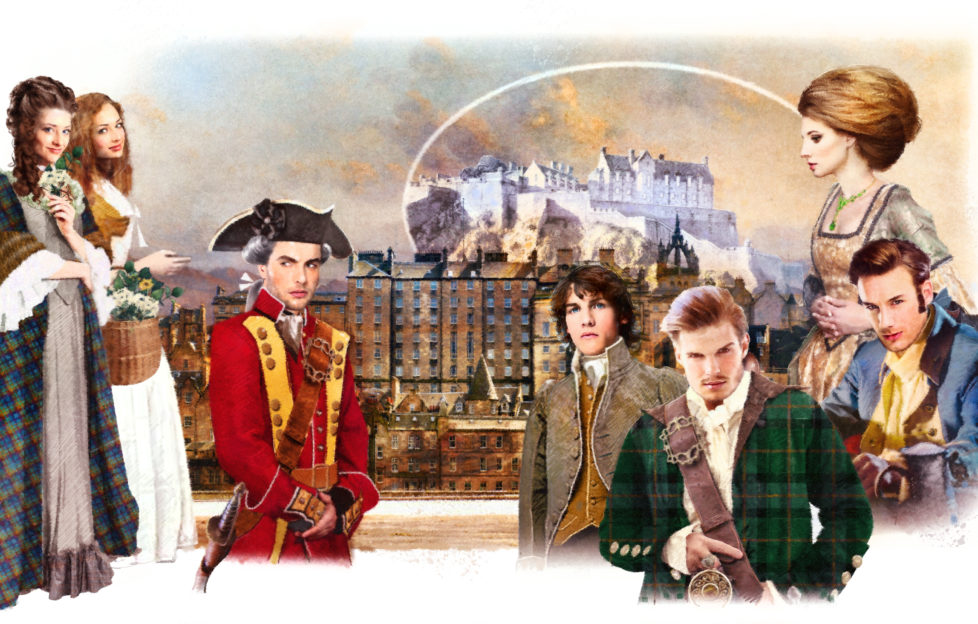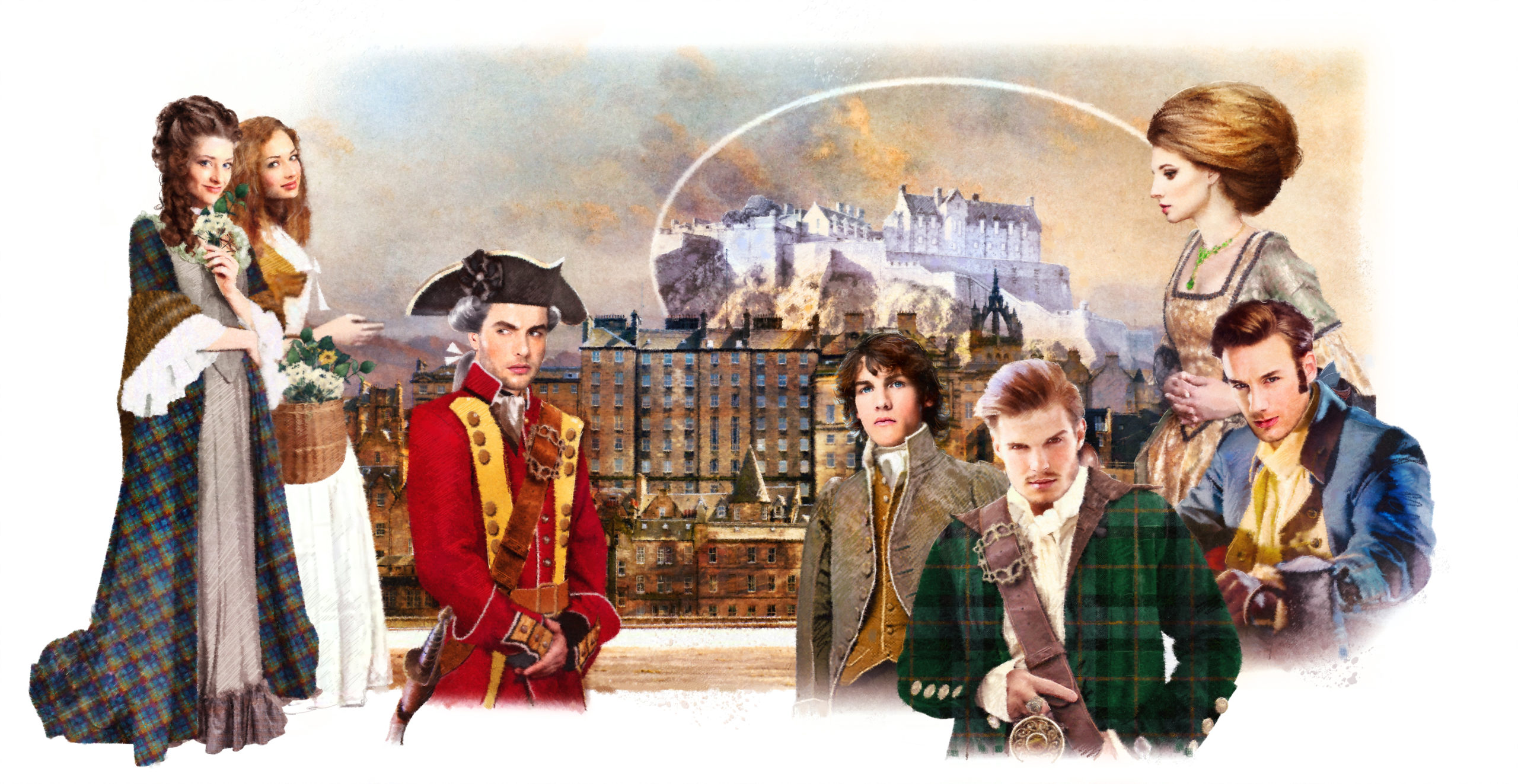The Glens of Stone – Episode 33

The Glens of Stone by Roy Stewart
« Previous Post- 1. The Glens of Stone – Episode 01
- 1. The Glens of Stone – Episode 33
General Guest stood, hands clasped behind his back, looking down at the castle ramparts from his office window.
As Robert sat patiently, he felt the old soldier looked his years; his shoulders drooped and his face was grey. No wonder, Robert thought, as he, too, pondered the news they’d just heard.
Sergeant McCrae had brought the latest dispatch barely an hour ago.
“That impertinent young jackanapes has had the effrontery to rally his supporters,” the general had announced, reading it. “The standard was raised at Glenfinnan and by all accounts quite a few Stuart sympathisers have rallied, though not as many as the Young Pretender might have hoped.”
For some while Robert and the general had discussed the ramifications of the situation, debating what action they would take. Now Robert awaited a final decision.
At last, the general turned from the window.
“Would you agree that the rebels will make for Edinburgh?” he said, his voice dispirited.
“Undoubtedly, sir. Here in the capital he can be proclaimed Prince Regent, which would add more power to his cause.”
“Hmm. If he’s not stopped he could be here in a few weeks, yet what can we do with but one regiment of ailing, tired men?”
“With respect, sir, you mentioned we were to be joined by another regiment under Colonel Gardiner.”
A sour look crossed the general’s face.
“Gardiner’s a good man but his dragoons are like ours, weary and sick. No, Captain, there’s not much hope there.” His face brightened as a thought struck him. “There’s always General Cope. Surely London will order him up here with his army?”
“Surely, sir,” Robert agreed. “I hear he has a good few thousand men. That should be enough to quell the rebels.”
“I wish I shared your optimism, Robert.” The older man sat down and loosened his tunic collar. “Whatever happens, I vow this castle will not fall to Charles Stuart,” he growled. “To that end, Captain, you will ensure we have enough supplies, food and ammunition to resist a long siege. And double the firearm drills for the men.”
“As you wish, sir.” Robert saluted and made for the door.
“By the way, Robert,” the general called after him, “the lassies who entertained us that evening at Lady Catherine’s – did you ever get to know them better? You appeared interested.” His eyes twinkled.
Robert shook his head, remembering the words of the Aberdeen merchant, William Watt.
“I’m afraid not.”
The general sighed.
“Honest to goodness, what’s wrong with the young men nowadays? If I was your age I’d be down at that Mission House whenever possible!”
“My duties are onerous, sir,” Robert said stiffly. “They do not allow for much dallying.”
* * * *
Dr Daniel Turner stood at Alison’s bedside, his face grave. Her cheeks were flushed and she rolled her head from side to side. He placed a hand on her forehead, then bent closer and sniffed.
“Have you noticed this musty smell?” he enquired of Kirsty, standing nearby.
“Yes, Doctor. It reminded my father and me of a place overrun by mice.”
“Exactly! That aptly describes the odour this poor girl is emitting, and that, together with the other symptoms, confirms my fears.”
Stepping away from the bed, he placed a hand on Kirsty’s shoulder and drew her back.
“Typhus,” he intoned quietly.
“Oh, no! Surely not! But she’ll get well, won’t she?”
“That depends. She’s young and with good nursing she may recover, but the crisis has yet to come. There is . . .” His words were interrupted as the door burst open and John and Agnes Porteous rushed in, Duncan and the lawyer, Davidson, right behind them.
Agnes cast one look at her daughter’s still form and reached for her husband’s hand.
“Oh, John, look at her, our poor wee girl.”
“You’re the doctor?” John flicked a glance at Turner.
“I am, sir. Daniel Turner at your service. I’m afraid your daughter is gravely ill. Typhus.”
“Oh, dear Lord,” Duncan whispered from the doorway while behind him, pale-faced, Davidson echoed his words.














